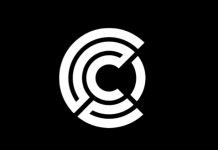The DAO, a decentralized autonomous organization for investing in other businesses, continues to soar in a crowdsale of native tokens, reaching the equivalent of $150 million in ethers (ETH). While it continues to surprise the cryptocurrency ecosystem and confound Wall Street with its success, the DAO still has its share of skeptics.
The digital organization with no conventional management structure or board of directors intrigues many but very nature may generate significant legal and operational hurdles for the organization.
For example, Eris Industries co-founder and COO Preston Byrne believes that blockchain technology will eventually “play a role in facilitating more democratic access to the capital markets” but he notes that the DAO will not be able to avoid current regulatory realities.
…the current body of laws governing this sphere of conduct exists to ensure that people to whom investments are marketed can be absolutely certain about what they’re getting in exchange for their money
In this respect THEDAO clearly falls very short of the mark.
Nathaniel Popper highlights the legal issues facing the DAO in a recent New York Times article.
Experts on virtual currencies say that Mr. Jentzsch and others involved have stepped into dangerous regulatory legal territory. American regulators have previously come down hard on entrepreneurs who sold investments using virtual currencies.
Popper is referring to the 2014 charges brought by the Securities and Exchange Commission against bitcoin startups founder Erik T. Voorhees for online soliciting of investors to buy shares in SatoshiDICE and FeedZeBirds.
The NYT’s Wall Street reporter also quotes a lawyer indicating that collaborators on the DAO project, regardless of disavowing control of the vehicle, would still face legal liability for promoting investments that become problematic.
In addition to eventual legal and regulatory difficulties, the DAO faces operational and technical complications as well.
Bitcoin Foundation Co-Founder and entrepreneur, Peter Vessenes suggests that the Ethereum smart contract code is just not ready for the big time. He notes this is in his blogpost, “Ethereum Contracts Are Going to be Candy for Hackers”:
Dan Mayer cites research showing industry average bugs per 1000 lines of code at 15-50 and Microsoft released code at 0.5 per 1000, and 0(!) defects in 500,000 lines of code for NASA, with a very expensive and time consuming process.
My review of Ethereum Smart Contracts available for inspection at dapps.ethercasts.com shows a likely error rate of something like 100 per 1000, maybe higher.
Bloomberg columnist and former Goldman Sachs investment banker, Matt Levine, is more philosophical about the problems with the DAO concept and smart contracts:
But companies aren’t just networks of contracts; they aren’t pure agreements negotiated freely between willing participants and no one else. They are also structures that are embedded in society, with rights and responsibilities that are regulated by background rules as well as by contracts. The blockchain-y reinvention of everything in the financial world — money, contracts, companies — is fascinating and impressive and, viewed from a certain angle, adorable. But sometimes it could stand to learn from what has gone before. After all, the elements of finance — money, contracts, companies — have already been invented. Perhaps their historical development might hold some lessons for their re-inventors.
Daniel Larimer, creator of BitShares - an older example of decentralized governance, identifies the organizational problems that the DAO cannot solve, and notes that it might generate newer difficulties as a result of its rigid structure :
Fancy technology can obscure our assessment of what is really going on. The DAO solves a single problem: the corrupt trustee or administrator. It replaces voluntary compliance with a corporation’s charter under threat of lawsuit, with automated compliance with software defined rules. This subtle change may be enough to bypass regulatory hurdles facing traditional trustee’s and administrators, but it doesn’t solve most of the problems the regulations were attempting to address.
What The DAO doesn’t solve is all of the other problems inherent with any joint venture. These are people problems, economic problems, and political problems. In some sense, The DAO creates many new problems caused by its ridged rules and expensive machine-enforced process for change.
[Guidance from R3 Blog]







